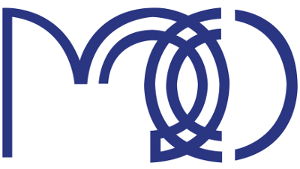Special Issue: Wearables for Transdisciplinary Movement and Computing
Special Issue: Wearables for Transdisciplinary Movement and Computing
Deadline Date: 7 June 2021.
Wearable technologies play an important role in innovations in fields intersecting movement and computing, fuelled by research across many disciplines. This special section of Wearable Technologies will gather research focusing on areas of wearable technology, for accessing movement data used in analysis or embodied interface design, and targeting applications in Performing Arts, Entertainment, Sports, Education and Human-Computer Interaction.
The International Conference on Movement and Computing (MOCO) and its community develops computational technology to support and understand human movement practice (e.g., computational analysis). The MOCO community also welcomes the study of movement as a means of interacting with computers (e.g., human-computer and human-machine interfaces). This requires an interdisciplinary understanding of movement that ranges from biomechanics to embodied cognition and the phenomenology of bodily experience.
As an extension of MOCO, this special collection bridges the two creative communities of art and science and bolsters the innovative nature of MOCO’s transdisciplinary community of academics and practitioners. Novel technology, methodologies, and perspectives described in this special collection will provide cross-cutting opportunities in broader wearable technology practices.
This special section focuses on research in wearable technologies for transdisciplinary movement and computing research and practices.
Please do not be deterred by potential publication fees. Instead, we highly encourage you to contact the guest editors with questions or concerns about fees or other matters.
We welcome original contributions, along with review papers, as well as revisions of proceedings of the International Conference on Movement and Computing (MOCO). We require submissions based on previous MOCO proceedings to be extended or revised significantly (e.g., adding depth to describing methodology, or applicability to wearables, etc.), leading to at least 30% new scientific material or results. It is highly encouraged to re-frame your paper for wide transdisciplinary Wearable Technologies readership. Submissions will require confirmation of meeting this requirement in the cover letter.
We welcome contributions on the following topics:
-
Novel movement and wearable technologies in:
- Dance and performing arts
- Education
- Entertainment and Gaming
- Clinical diagnoses and rehabilitation
- Sports and movement training
- Human Computer Interaction, Embodied interaction
- Gesture Studies
- Sound and music
- Virtual Reality and Augmented Reality
- Instrumented textiles, costumes, and body-fixed instruments
-
Movement analysis and analytics linked to wearable systems
-
Computational methods, middleware, and machine learning approaches for wearable applications
-
Movement analysis and analytics linked to wearable systems
-
Design and methodologies linked to wearable systems, including:
- User-centered design
- Practice based methods
- First/ Second person methods
-
Ethics and philosophical perspectives
Guest Editors
- Antonia Zaferiou, Ph.D., Assistant Professor, Stevens Institute of Technology, Hoboken, NJ, USA
- Vilelmini Kalampratsidou, Ph.D., Adjunct Researcher, Athena Research & Innovation Center in Information Communication & Knowledge Technologies, Artemidos 6, Marousi, Athens, Greece
- Gregory Corness, Ph.D., Associate Professor, Columbia College Chicago, Chicago, IL, USA
- Frédéric Bevilacqua, Ph.D., Head Researcher, Institut de Recherche et Coordination Acoustique/Musique (IRCAM), Paris, France
